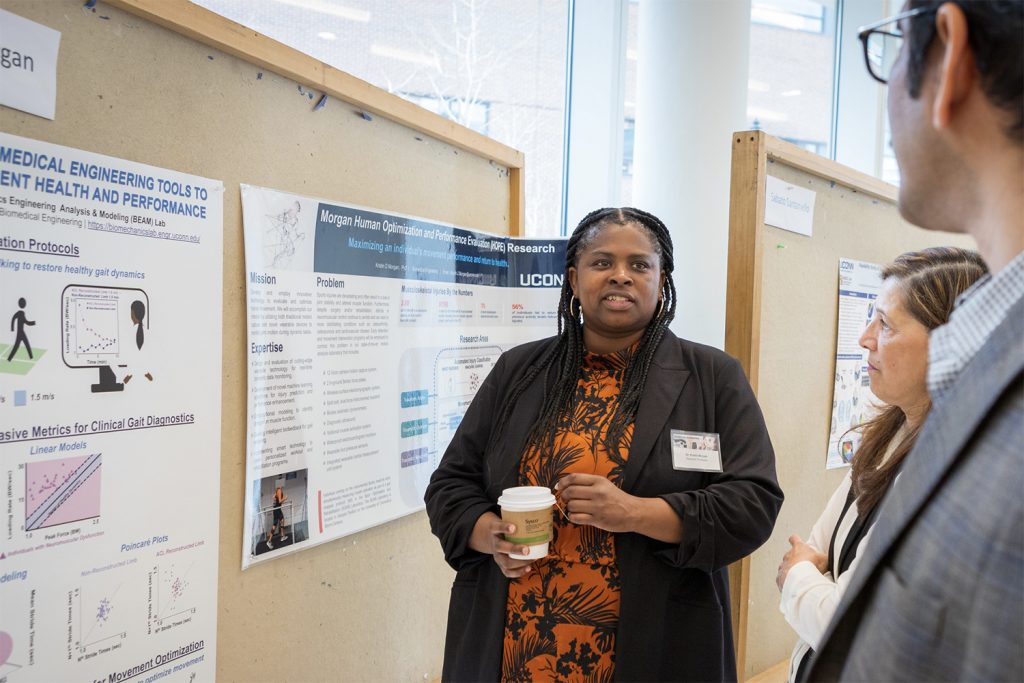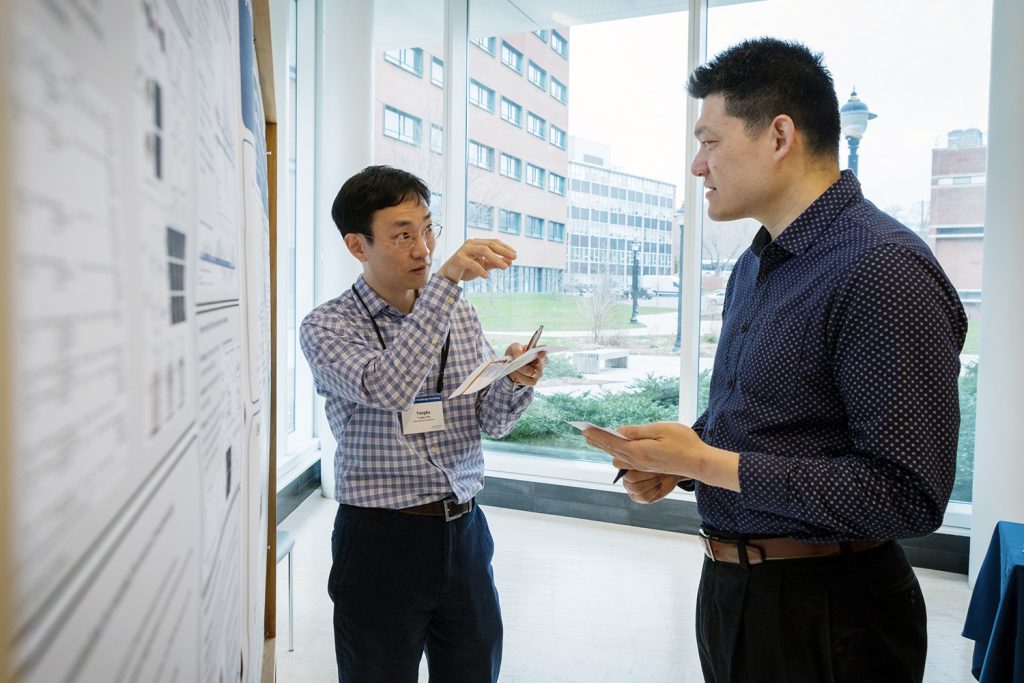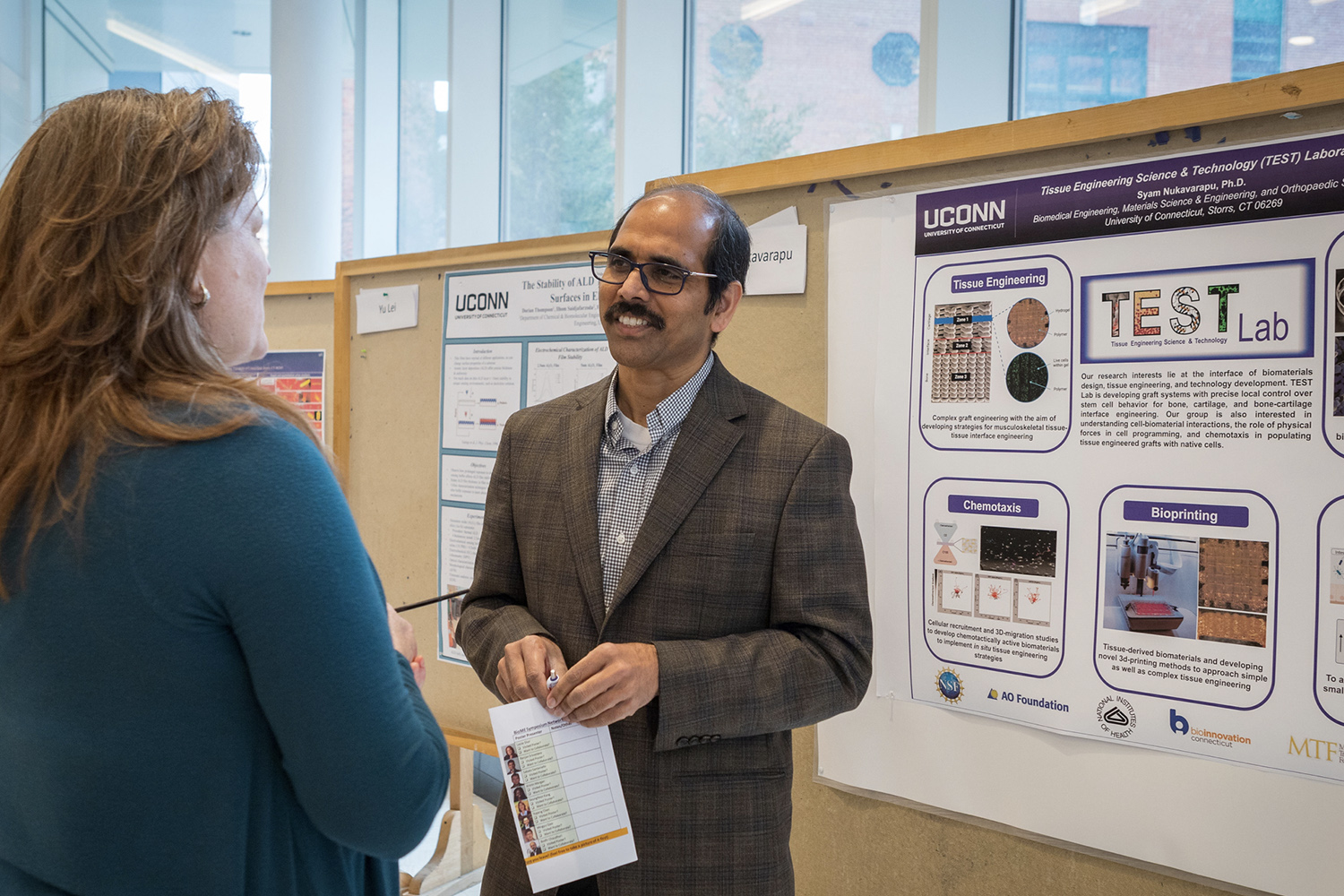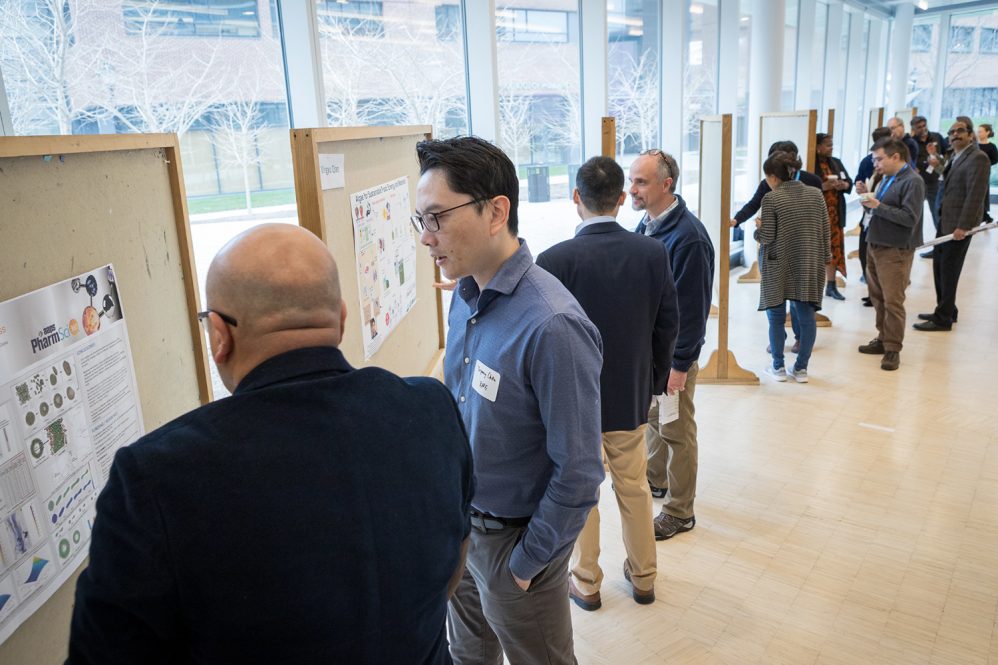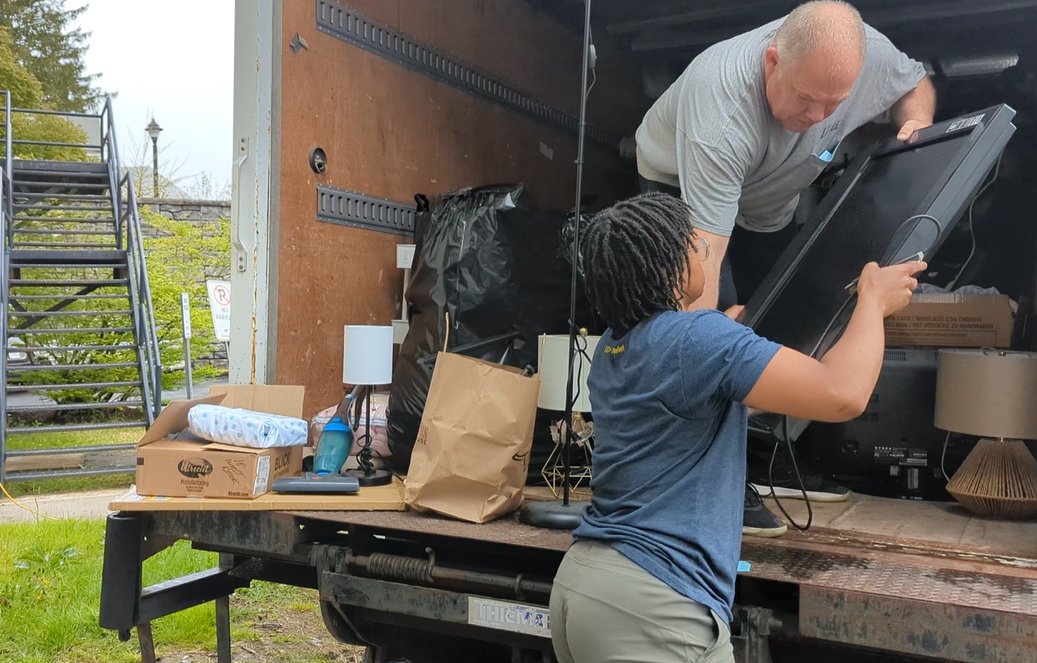A new initiative in the College of Engineering will serve as the nexus for bio-based technology at UConn.
The Collaboratory for Biomedical and Bioengineering Innovation fosters a vibrant and unified environment where biomedical and bioengineering researchers work together to invent, develop, and adapt existing biotechnologies to solve new problems in the biological sciences.

“There seems to be an artificial divide between researchers who focus on biomedical studies and those working on other biological problems,” says Leslie Shor, associate dean for research and graduate education and co-director of Collaboratory for Biomedical and Bioengineering Innovation. “This is especially strange for engineers, because we are often leading the technical aspects of the work, and an enabling technology such as a novel sensor or new imaging technology works the same regardless of the biological application.”
The Collaboratory, however, aims to help researchers establish new interdisciplinary collaborations outside their existing research networks.
“By promulgating emerging technologies across fields, we enhance the value of the emerging technology and simultaneously unlock new areas of inquiry and accelerate new discoveries,” Shor explains.
Bio-based technology, or biotechnology innovation refers to the development and advancement of technologies that are based on biological systems or use biological materials. This can include a wide range of innovations such as biomedical devices (prosthetics, medical imaging equipment, drug delivery systems); bio-systems (biofuels production, bioremediation of pollutants, agricultural biotechnology); and bio-computation (bioinformatics for analyzing genetic data, computational modeling of biological systems, or machine learning algorithms for drug discovery).
Members of the Collaboratory are nationally and internationally-renowned faculty.
Thanh Nguyen, associate professor of mechanical engineering and biomedical engineering, works at the interface of biomedicine, materials and nano/micro technology. He’s already collaborating with researchers on campus and UConn Health for vaccine, drug, tissue-engineering and biomaterials research, but expects the Collaboratory for Biomedical and Bioengineering Innovation will help strengthen those relationships and allow him to explore more research opportunities.
“UConn is already a collaborative and terrific environment for interdisciplinary research. But this initiative makes biomedical and engineering research from different groups much more visible to all researchers at UConn.” Nguyen says. “The Collaboratory also could eventually lead to more impactful studies and grant funding.”

Like Nguyen, Sabato Santaniello, associate professor of biomedical engineering, is interested in potential collaborations with UConn Health and other medical centers in the region. His work in neuromodulation of the cerebellum is primarily targeted to clinical neuroscience—providing new ways of probing the diseased brain and improving treatments of patients affected by movement disorders.
“My work has potential to translate into new, patentable products down the road, but now, my program can benefit the initiative by intercepting the needs of clinicians, especially neurologists and neurosurgeons,” he says.
Santaniello describes the Collaboratory “as a unique platform” that will regionally advertise the many cutting-edge biomedical technologies that UConn faculty develop and better intercept the needs that come from the healthcare industry and the clinical research.
“It will benefit greatly those PIs at UConn who are looking for new, exciting applications for the tools that are developed in their labs,” he says.
The group aims to promote bio-based technologies through collaborative research; boost economic growth in Connecticut by creating new bio-based products and businesses; train students for biotech careers by involving them in research and innovation; and establish UConn as a global leader in bio-based technology innovation.
“Our goals are to drive research, investment, and possibilities in Connecticut,” explains Guoan Zheng, associate professor of biomedical engineering and co-director of the Collaboratory for Biomedical and Bioengineering Innovation. “By advancing technology, we believe we can make a significant impact on scientific discovery and its applications driving socially impactful research and benefiting Connecticut’s economy and workforce.”
Shor, who’s also Centennial Professor of Chemical and Biomolecular Engineering, leads the Engineered Microhabitats Research Group at UConn, where she mentors an interdisciplinary team focusing on biotechnology for sustainability. “My lab simply adapted established microfluidics or ‘lab-on-a-chip’ technologies to a completely different field of biology: soil microbes living near plant roots. This approach directly led to new understanding about soil moisture regulation by bacteria and fungi and a new appreciation for how soil protists can be used to promote more sustainable food production. I want to see the same interchange of approaches advance all types of biological sciences to advance a healthy and sustainable future,” she said.
The Collaboratory is seeking student, faculty, and corporate partners. For more information, contact the UConn Collaboratory.
The Collaboratory for Biomedical and Bioengineering Innovation celebrated its launch April 2 with a networking symposium and poster session. Faculty from several engineering disciplines attended to learn about the interdisciplinary relationships related to biomedical and bioengineering research and technology innovation. Photos of the event are below and in this UConn College of Engineering Flickr album. (Chris LaRosa/UConn)
